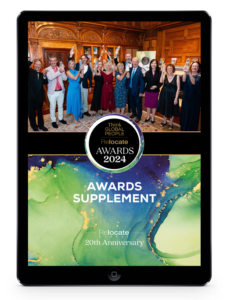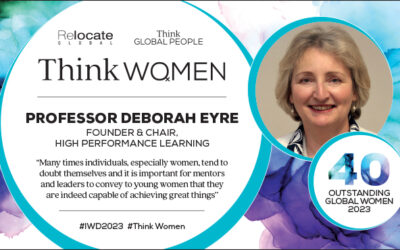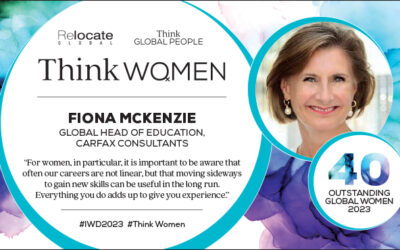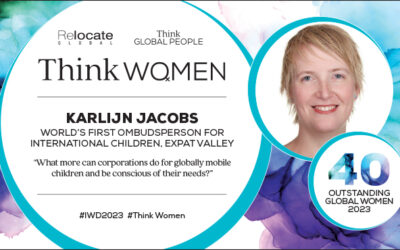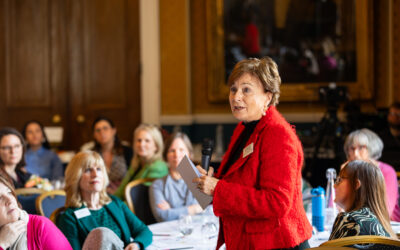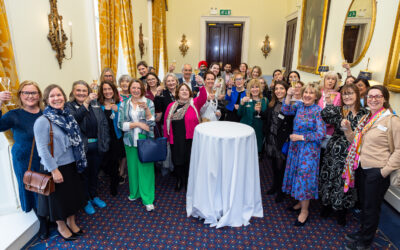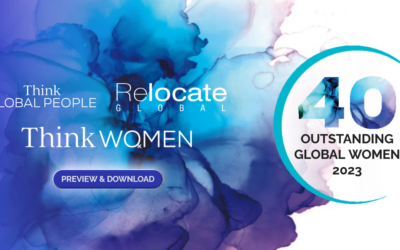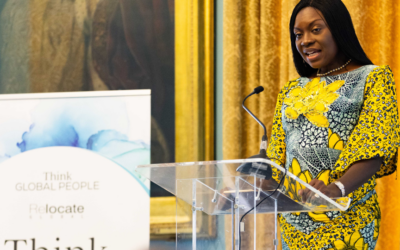Ingrid Pope | 40 Outstanding Global Women 2023
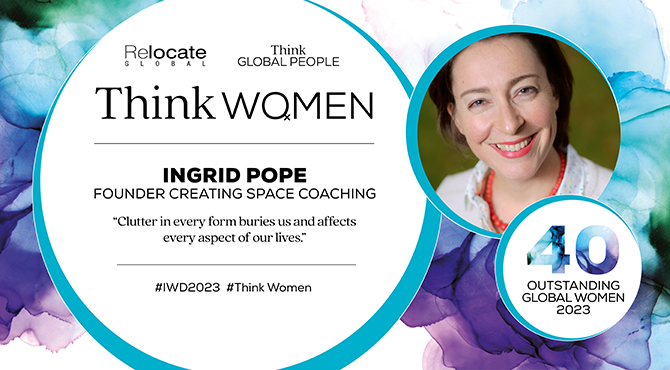
The art of decluttering – how changing your mindset can make your relocation easier and more productive
Moving between assignments can be stressful in terms of the physical strain of packing up belongings and moving, and the paperwork involved in tax, immigration and finding somewhere new to live.
Then there is the question of finding schools, getting to know a new culture and workplace, and ensuring that your family are settled and thriving. HR managers are keenly aware that assignments have the potential to fail if a family does not manage to settle and integrate, even if the assignee themselves is enjoying their new role.
With a greater focus on mental health and employee wellbeing, HR managers and managers with global teams are looking for ways to support their staff in new roles. Coaching, mentoring and support can make a difference and prevent employees becoming overwhelmed by their move.
One way assignees can avoid becoming completely overwhelmed is to consider well in advance what they need to bring from home in order to settle in. This can be a challenge if they are moving with a family and need to find accommodation that can fulfil different needs.
In way of preparation, one option is to help them declutter their life to avoid relocation overwhelm. This can be both in terms of their physical space and in terms of the mental load they are carrying. Ingrid Pope is an expert on decluttering and managing admin more effectively, and she spoke to Relocate Global about how assignees can operate more effectively and creatively and how they can create a new living and working space.
“Clutter in every form buries us and affects every aspect of our lives. The speed of the world and work environment, coupled with the use of technology in every step of what we do, leaves us struggling to keep up with our task lists, news, feeds, thoughts and relationships.”
How does our environment affect our productivity?
After a 16-year career in corporate IT working within large multinational FMCG companies, Ingrid now works with successful leaders helping them create thinking space to focus on their priorities and reach their goals faster and more effectively.
“Clutter in every form buries us and affects every aspect of our lives,” she says. “The speed of the world and work environment, coupled with the use of technology in every step of what we do, leaves us struggling to keep up with our task lists, news feeds, thoughts and relationships.”
The first step towards a calmer, less cluttered life is to survey and take stock of the situation you are currently in. She says it is important for people to notice the environment they have created for themselves at home, so that when they relocate they can take the best aspects of that with them.
“Thinking of the workplace, assuming you are not going to be working from home, consider how and where you work best,” she says. “What sort of space do you need in order to be creative and productive? What do you need to be really effective? Are you comfortable with the hot desk environment, or do you prefer to have your own desk and your own things around you?”
She recommends taking a moment to sit back and look at what you’ve created for yourself at home and at work.
Deciding what to take and what to leave behind when you relocate
The older we get, the more we accumulate, so Ingrid helps clients sort out what really matters, especially if they are having to move frequently or put their belongings into storage.
“People who move a lot quite often tend to have a more of an ability to just get rid of things they do not need,” she says. “It is about noticing how you operate. Are you someone who likes to accumulate and keep and how does that work for you? Or are you someone who gets rid of items quite easily but how do you deal with those things that have a sentimental value?”
How to cope with the growing demands of technology
Technology quite often involves mental clutter and there’s also an emotional element to it. Tech can make our lives easier, but at some point we run out of bandwidth to deal with it all. Within a day you might have times when you have more headspace to engage with new tech than others. So leave it until you’ve got that headspace to deal with your life admin, she says.
“In terms of relocating think about how that country uses tech. In the UK, we’re really advanced with tech, and a lot of admin can be done digitally and works reasonably smoothly. When you move to a different country, admin that you thought you’d be able to do very easily on your phone might not work. Either it has to be done in person, or the app is not available on your phone in that country.”
While the technology that you are using at work might be familiar, that might not be the case for paying bills, organising insurance, shopping online or other administrative tasks that we take for granted and can do easily in the UK.
As for social media, some networks can be helpful and supportive, while others can be a distraction or an escape route. The important thing is to think about whether you are using social media in a way that is helpful and healthy.


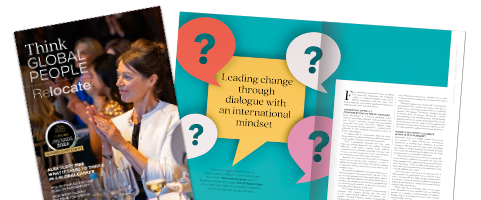
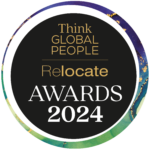
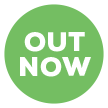 Magazine
Magazine